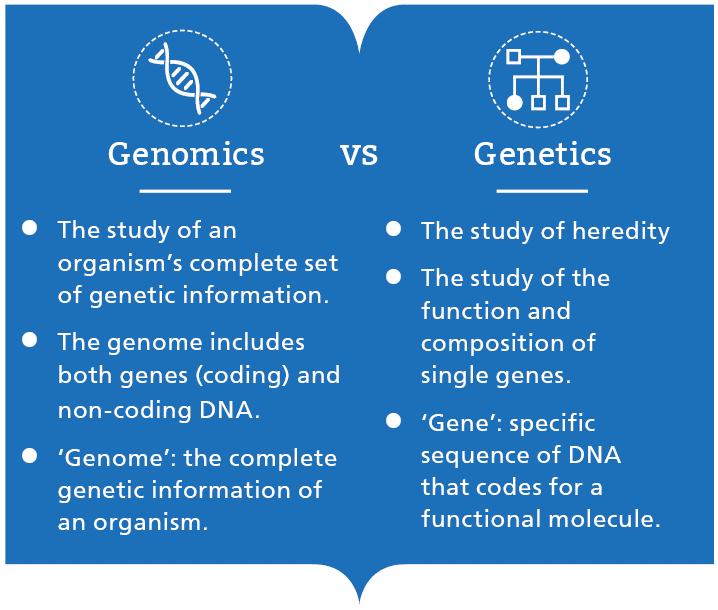Genomic testing is the process of examining the information that our bodies hold within our unique DNA.
Below we have information that explains what genomes, genes, and genomic testing are – and why they can be helpful for people with sarcoma.
Understanding genomics
The genome is all 3.2 billion letters of your DNA. It contains around 20,000 genes. Genomics is the study of all of a person’s genes (the genome).
When we think of genes, we think of the molecules that determine features that can be inherited – such as hair colour or height. But our genes only make up about 1-5% of our genome, and while genes are an important part of our DNA, we now know they’re not the whole story. The genome does other important jobs, such as regulating our genes by controlling when and at what level they’re turned on or off. This regulation is key to normal development and preventing uncontrolled cell growth.
By looking at the entire genome, we’re able to gather more information about every single gene, as well as how they interact together.
This infographic from the Health Education England’s Genomics Education Programme is a useful way of explaining the difference between genomics and genetics:

Credit: Health Education England’s Genomics Education Programme
Sarcomas and other cancers are often caused by a change (mutation) in the DNA. This can happen if a cell, such as a muscle cell, mutates. It becomes different from the normal tissue and grows in an uncontrolled way.
Another way is for a defect to be inherited. If this happens, the change is in all of a person’s cells. This can make a person prone to cancers in more than one tissue. The cause of a specific tumour’s mutation is not always known. This is especially true for sarcoma.
What is genomic testing?
Genomic testing consists of a range of processes and techniques used to determine details about your genome (DNA).
There are different types of genomic tests. Some look at inherited genes and traits. Others confirm a diagnosis or explore treatment options.
People diagnosed with sarcoma tend to benefit more from the tests that look at diagnosis and treatment.
One of the main genomic tests offered to people diagnosed with sarcoma is a test called whole genome sequencing.
Part 2
Types of genomic test









